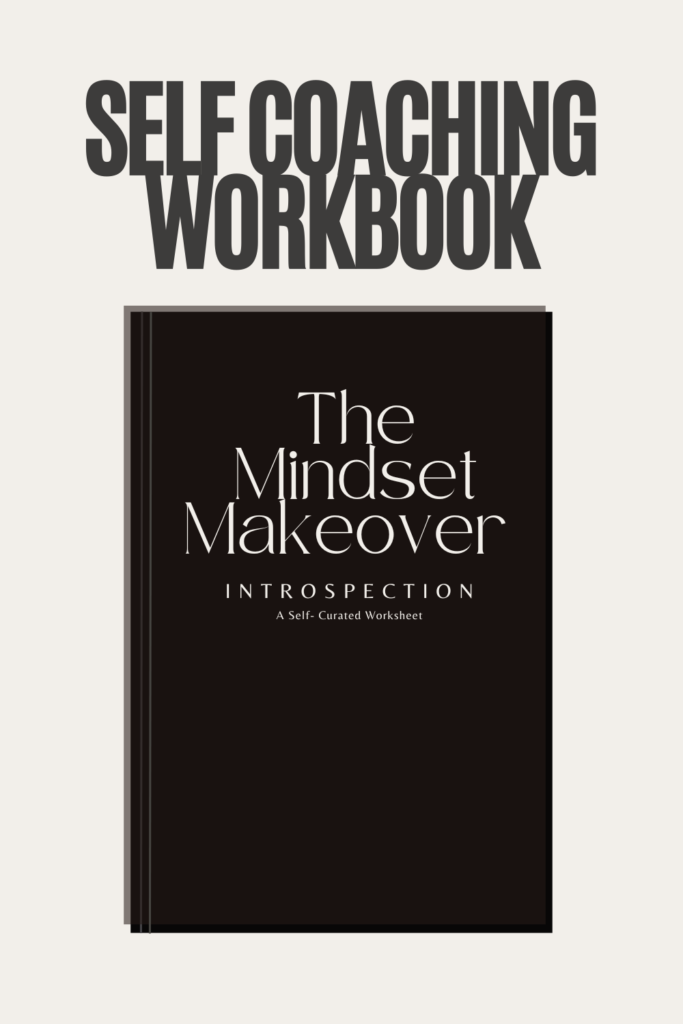In today’s fast-paced world, it’s easy to fall into detrimental patterns that negatively impact our health, relationships, and overall well-being. However, with the right strategies and mindset, you can overcome these habits and embark on a transformative journey toward a happier and more fulfilling life.
In this article, we will delve deep into the cause of bad habits, the benefits of breaking bad habits, and how to change these bad lifestyle choices. Plus, I listed down 21 bad lifestyle habits with actionable steps to help you break free and create positive change.
Table of Contents
The Influences Behind Unhealthy Habits
Bad habits can have various causes, but they often stem from a combination of psychological, environmental, and emotional factors. Some common causes include:
a) Conditioning: Habits can be formed through repetitive actions and reinforcement over time. When a behavior is repeatedly performed in a certain context or triggered by specific cues, it becomes ingrained as a habit.
b) Stress and Emotional Triggers: Many people turn to unhealthy habits as a way to cope with stress, anxiety, boredom, or other emotional triggers. These habits provide temporary relief or distraction, leading to their reinforcement.
c) Lack of Awareness: Sometimes, individuals engage in bad habits without fully realizing the negative impact they have on their lives. Lack of awareness or information about healthier alternatives can contribute to the perpetuation of these habits.
d) Environmental Influences: Our surroundings and social networks can influence our habits. For example, if people in our social circle engage in unhealthy behaviors, we may be more likely to adopt those habits as well.
The Benefits of Breaking Bad Habits
Breaking bad habits can have numerous positive impacts on your lifestyle:
a) Improved Physical Health: Many bad habits, such as smoking, excessive drinking, poor diet, or lack of exercise, can have detrimental effects on your physical health. By breaking these habits, you can improve your overall well-being, reduce the risk of chronic diseases, and increase your energy levels.
b) Enhanced Mental Well-being: Bad habits often contribute to stress, anxiety, and other mental health issues. Breaking these habits can lead to a greater sense of calmness, improved mood, and increased mental clarity.
c) Increased Productivity: Bad habits, such as procrastination or excessive screen time, can hinder productivity and negatively impact your professional and personal life. By replacing these habits with more constructive ones, you can enhance your focus, and efficiency, and achieve greater success in your endeavors.
d) Stronger Relationships: Certain bad habits, such as poor communication, negativity, or neglecting social connections, can strain relationships with loved ones. Breaking these habits allows you to foster healthier, more meaningful connections and improve the quality of your relationships.
e) Personal Growth and Self-empowerment: Overcoming bad habits requires discipline, self-awareness, and perseverance. By successfully breaking these habits, you develop a sense of self-efficacy, boost your confidence, and open doors to personal growth and positive transformation.
How to Change Bad Lifestyle Choices
Changing lifestyle habits requires commitment, self-reflection, and a proactive approach. Here are some strategies to help you change your habits:
a) Set Clear Goals: Define the specific habits you want to change and set realistic, measurable goals. Break down your goals into smaller, actionable steps to make them more attainable.
b) Identify Triggers and Replace Them: Pay attention to the triggers or cues that lead to your bad habits. Replace those triggers with healthier alternatives or positive behaviors that align with your goals.
c) Build a Support System: Surround yourself with supportive individuals who can encourage and hold you accountable throughout your journey. Share your goals with trusted friends, family, or join a support group for additional motivation.
d) Practice Self-awareness: Cultivate mindfulness and observe your thoughts, emotions, and behaviors. Recognize the patterns and triggers associated with your bad habits. This awareness will enable you to interrupt the automatic response and make conscious choices.
e) Replace Bad Habits with Positive Ones: Instead of solely focusing on eliminating bad habits, shift your attention to cultivating new, positive habits. Choose activities that align with your values, promote well-being, and contribute to your personal growth.
21 Bad Lifestyle Habits: Time to Break Free
- Sedentary Lifestyle: Embrace the Power of Movement
In this modern age of technology, many of us spend prolonged hours sitting, whether it’s at work or during leisure time. However, leading a sedentary lifestyle can have adverse effects on our physical and mental health.
Quick fix: By incorporating regular exercise into your routine, you can boost your energy levels, improve cardiovascular health, and reduce stress. Aim for at least 30 minutes of moderate-intensity exercise, such as brisk walking or cycling, most days of the week. Try this: TRANSFORM IN 75 DAYS: UNLEASH YOUR POTENTIAL WITH THE 75-DAY CHALLENGE
- Unhealthy Diet: Nourish Your Body and Mind
The food we consume plays a vital role in our overall well-being. It’s essential to fuel our bodies with nutritious, whole foods that provide the necessary vitamins, minerals, and antioxidants.
Quick fix: Limit your intake of processed foods, sugary snacks, and excessive caffeine. Instead, opt for a balanced diet rich in fruits, vegetables, lean proteins, and whole grains. Stay hydrated by drinking an adequate amount of water throughout the day.
- Lack of Sleep: Prioritize Rest and Recovery
Sleep deprivation can significantly impact our cognitive abilities, mood, and overall health.
Quick fix: Aim for 7-9 hours of quality sleep each night to allow your body and mind to recharge. Establish a consistent sleep schedule, create a relaxing bedtime routine, and create an environment conducive to restful sleep, such as a cool, dark, and quiet bedroom.
- Chronic Stress: Find Balance and Inner Peace
Stress is an unavoidable part of life, but chronic stress can have severe consequences on our well-being.
Quick fix: Incorporate stress-management techniques into your daily routine, such as meditation, deep breathing exercises, or engaging in hobbies that bring you joy. Prioritize self-care and find ways to relax and unwind regularly.
- Excessive Screen Time: Unplug and Reconnect
We live in a digital age where screens dominate our daily lives. Excessive screen time can strain our eyes, affect our sleep patterns, and hinder face-to-face interactions.
Quick fix: Set boundaries on your screen usage, take regular breaks, and engage in activities that allow you to connect with others and the world around you.
- Negative Self-Talk: Cultivate Self-Compassion
The way we speak to ourselves matters. Negative self-talk can erode our self-esteem and hinder personal growth.
Quick fix: Practice self-compassion by replacing self-criticism with positive affirmations and embracing your strengths and imperfections. Surround yourself with supportive and uplifting individuals who believe in your potential. Read more: 7 MIND-BLOWING BENEFITS OF SELF-TALK YOU DIDN’T KNOW ABOUT
- Procrastination: Take Action and Achieve Your Goals
Procrastination often stems from fear, perfectionism, or a lack of clarity.
Quick fix: Break free from this habit by setting realistic goals, creating a plan of action, and breaking tasks into smaller, manageable steps. Practice self-discipline and hold yourself accountable for your progress.

Register for the FREE VIRTUAL EVENT
- Lack of Boundaries: Prioritize Your Well-being
Setting boundaries is crucial for maintaining healthy relationships and preserving your mental and emotional well-being.
Quick fix: Learn to say no when necessary, communicate your needs clearly, and surround yourself with people who respect and support your boundaries.
- Excessive Clutter: Create a Calming Environment
Physical clutter can contribute to mental clutter and increase stress levels.
Quick fix: Take the time to declutter your living and working spaces, creating a serene environment that promotes productivity and peace of mind. Donate or discard items that no longer serve a purpose in your life.
- Negative Relationships: Surround Yourself with Positivity
Toxic relationships can drain your energy and hinder personal growth.
Quick fix: Surround yourself with positive, supportive individuals who inspire and uplift you. Evaluate your relationships and set boundaries with those who consistently bring negativity into your life.
- Lack of Gratitude: Practice Appreciation
Cultivating gratitude is a powerful tool for shifting our mindset and finding joy in everyday life.
Quick fix: Take a moment each day to reflect on the things you’re grateful for, whether it’s a supportive friend, a beautiful sunset, or a personal achievement. Keep a gratitude journal to record these moments and revisit them during challenging times. Practice Gratitude: THE TOP 10 SCIENCE-BACKED BENEFITS OF GRATITUDE YOU NEED TO KNOW
- Excessive Multitasking: Focus on One Task at a Time
While multitasking may seem like an efficient way to get things done, it often leads to decreased productivity and increased stress levels.
Quick fix: Instead, prioritize tasks and focus on them one at a time. Set aside dedicated time for deep work, free from distractions, and watch your productivity soar.
- Lack of Personal Development: Embrace Lifelong Learning
Personal growth is a lifelong journey that enriches our lives and expands our horizons.
Quick fix: Commit to continuous learning and self-improvement. Read books, attend workshops, listen to podcasts, or enroll in courses that align with your interests and goals.
- Poor Time Management: Harness the Power of Planning
Effective time management is essential for maximizing productivity and reducing stress.
Quick fix: Prioritize tasks, create a schedule, and allocate specific time slots for different activities. Avoid overcommitting yourself and learn to delegate or say no when necessary.
- Self-Imposed Limitations: Embrace Your Potential
We often underestimate our capabilities and limit ourselves based on fear of failure or rejection.
Quick fix: Challenge self-imposed limitations by stepping outside of your comfort zone. Take calculated risks, embrace new opportunities, and believe in your ability to grow and succeed.
- Lack of Physical Activity: Move Your Body Regularly
Physical activity is not only essential for maintaining a healthy weight but also for improving mental clarity and overall well-being.
Quick fix: Find activities that you enjoy, whether it’s dancing, hiking, or playing a sport, and incorporate them into your routine. Aim for a combination of cardiovascular exercise, strength training, and flexibility exercises.
- Unhealthy Coping Mechanisms: Find Healthy Alternatives
Engaging in unhealthy coping mechanisms, such as excessive alcohol consumption or emotional eating, can have detrimental effects on your health and well-being.
Quick fix: Seek healthier alternatives, such as practicing mindfulness, seeking support from loved ones, or engaging in creative outlets like art or music.
- Lack of Financial Planning: Take Control of Your Finances
Financial stress can weigh heavily on our minds and impact our overall well-being.
Quick fix: Take control of your finances by creating a budget, tracking your expenses, and saving for the future. Seek professional advice if needed and develop healthy spending habits.
- Negative News Consumption: Balance Information Intake
While staying informed is important, excessive consumption of negative news can contribute to anxiety and stress.
Quick fix: Find a balance between staying informed and protecting your mental well-being. Limit your news intake, choose reliable sources, and engage in activities that bring you joy and peace.
- Lack of Social Connection: Nurture Meaningful Relationships
Human beings are social creatures, and healthy relationships are vital for our happiness and well-being.
Quick fix: Cultivate meaningful connections by reaching out to loved ones, joining social groups or clubs, and engaging in activities that allow you to connect with others who share similar interests.

Your Perfect Partner on this Journey through Life
- Self-Care Neglect: Prioritize Your Well-being
Self-care is not selfish; it’s essential for maintaining balance and nurturing your overall well-being.
Quick fix: Make time for activities that bring you joy and relaxation, whether it’s taking a bubble bath, practicing meditation, or indulging in a hobby you love. Prioritize self-care as a non-negotiable part of your routine.























14 comments on “21 Bad Lifestyle Habits: How to Break Free and Transform Your Life”
Giada
Thank you for this post! I loved how you broke down every goal into tiny and achievable actions 🙂 The biggest challenge is always to start!
Lani
Giada,
You said it best, The biggest challenge is always to start!
Deanna | Life By Deanna
Love this post! There are so many ways we can improve our lives so I love how you mention habits to break and offer examples of better habits to start!
Lani
Hi Deanna,
Bad habits are difficult to break but if you really want to change your life, I say Go for it!
Julie Russell
Love the post and information about bad lifestyle habits and how to break them. Good idea putting down the habit and then a quick fix. I look forward to reading more articles!
Lani
Hi Julie,
I’m glad you enjoyed this post. Feel free to read our other life changing articles, you might find just what you need!
Julia
Very complex post, well done!
Lani
Hi Julia,
I’m glad you enjoyed this post. Thanks for the comment.
Valery
Such a helpful post for me! I definitely need to work on balancing information intake. I would be lost without my exercise and gratitude journal though, they truly help so so much! Thanks for sharing such important thoughts.
Lani
Hi Valery,
You have some amazing habits there. I hope you pick-up some new ideas to work on.
A. H.
Love this. Everyone needs a little help sometimes!
Lani
Hi A.H.
You are absolutely right! We all do need some help sometimes.
Tracy McHugh
Such a great post! I try to incorporate many good habits but procrastination and knowing where to start sometimes gets me. Thanks for sharing
Lani
Tracy,
You are not alone it is a constant battle for me with procrastination. The important thing is to never give up.